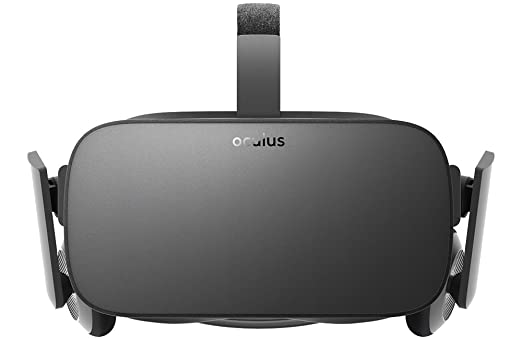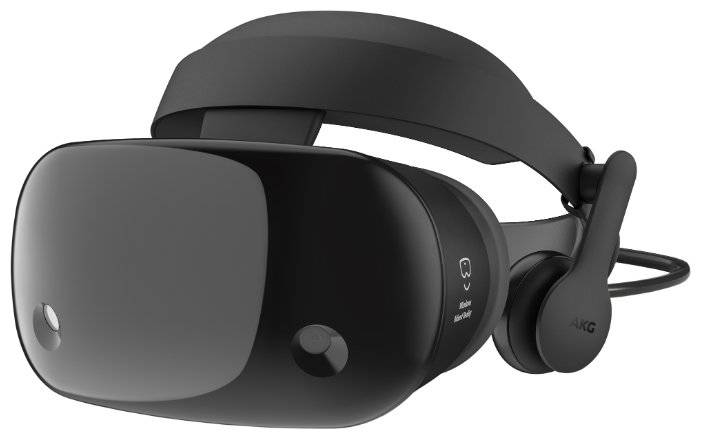Oculus Rift vs Samsung Odyssey
When you compare the Samsung Odyssey to the Oculus Rift you can see which VR Headset is better. Let's take a look of the comparison, and see which model of VR Headset out ontop.
 Oculus Rift
Oculus Rift4.0
Based on 4 reviews
Lowest prices
What VR Headset is better?
I recently had the opportunity to review two of the top virtual reality headsets on the market: Samsung Odyssey and Oculus Rift. Both headsets have similar features, including a 110° field of view, 360 tracking, and 90 Hz refresh rate. However, there are some differences between them that make one better than the other depending on what you’re looking for in a VR experience.
Starting with Samsung Odyssey, its 1440 × 1600 px resolution is much higher than Oculus Rift’s 1080 × 1200 px resolution. This makes it ideal for playing visually demanding games or watching movies with higher quality graphics. Furthermore, while both headsets require an Intel Core i5 processor as a minimum CPU requirement, Samsung Odyssey requires a GTX1050 GPU whereas Oculus Rift requires either a GTX 1050Ti or AMD Radeon RX 470 GPU or greater. This makes Samsung Odyssey slightly more powerful when it comes to graphical performance compared to Oculus Rift which may be desirable if you plan on using your headset for gaming purposes.
On the other hand, Oculus Rift does have an edge over Samsung Odyssey when it comes to minimum CPU requirements as its Intel i3-6100 processor is less demanding than Samsung’s Core i5 processor requirement which may make it more accessible for people who do not own such powerful processors in their machines yet still want to experience VR at home. Additionally, since Oculus is compatible with Windows Mixed Reality, users can take advantage of this platform's expanded content library and compatibility with additional accessories such as motion controllers from different manufacturers which can further enhance their VR experience at home.
Personally I found myself favoring the Samsung Odyssey headset more due to its enhanced visuals and faster performance when compared to the Oculus Rift headset; however this will ultimately come down to personal preference as each individual might prioritize different aspects of each device depending on what they expect out of their VR experience. Regardless of which one you choose you’ll definitely get great value out of either one!
Specs comparison between the two VR Headsets
| Samsung Odyssey | Oculus Rift | |
|---|---|---|
| Overview | ||
| Brand | Samsung | Meta |
| Model Name | Odyssey | Rift |
| Release Date | 2017 | 2016 |
| Country of Origin | South Korea | United States |
| Category | PC VR | PC VR |
| Battery Life | 4 h | 3 h |
| Display | ||
| Field of View | 110° | 110° |
| Resolution | 1440 × 1600 px (per eye) | 1080 × 1200 px (per eye) |
| Refresh Rate | 90 Hz | 90 Hz |
| Display Type | AMOLED | OLED |
| Minimum Requirements | ||
| Min. CPU Required | Intel Core i5 | Intel i3-6100 or AMD Ryzen 3 1200, FX4350 or greater |
| Min. Graphics Required | Nvidia GTX1050 | Nvidia GTX 1050Ti or AMD Radeon RX 470 or greater |
| Min. RAM Required | 8 GB | 8 GB |
| Operating Systems | Microsoft Windows | Microsoft Windows |
| Sizing | ||
| Weight | 645 g | 470 g |
| Dimensions | 202 × 132 × 111 mm | 184 × 114 × 89 mm |
| Features | ||
| Room Scale? | YES | YES |
| 360 Tracking? | YES | YES |
| Positional Tracking? | YES | YES |
| Front Camera? | YES | No |
| Eye Tracking? | YES | No |
| Usable with Glasses? | YES | YES |
| Cooling System | No | |
| Built in Headphones? | YES | YES |
| Built in Microphone? | YES | YES |
| Flip Visor? | No | No |
| Voice Command? | YES | YES |
| IPD Adjustment? | YES | YES |
| Lens to Eye Adjustment? | YES | YES |
| USB? | YES | YES |
| MicroUSB? | YES | No |
| Display Port? | YES | No |
| Mini Display Port? | No | No |
| HDMI? | YES | YES |
| MicroSD? | YES | YES |
| Bluetooth? | YES | YES |
| Wifi? | YES | No |
